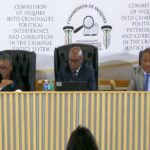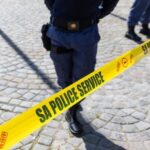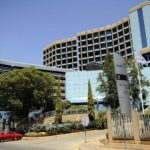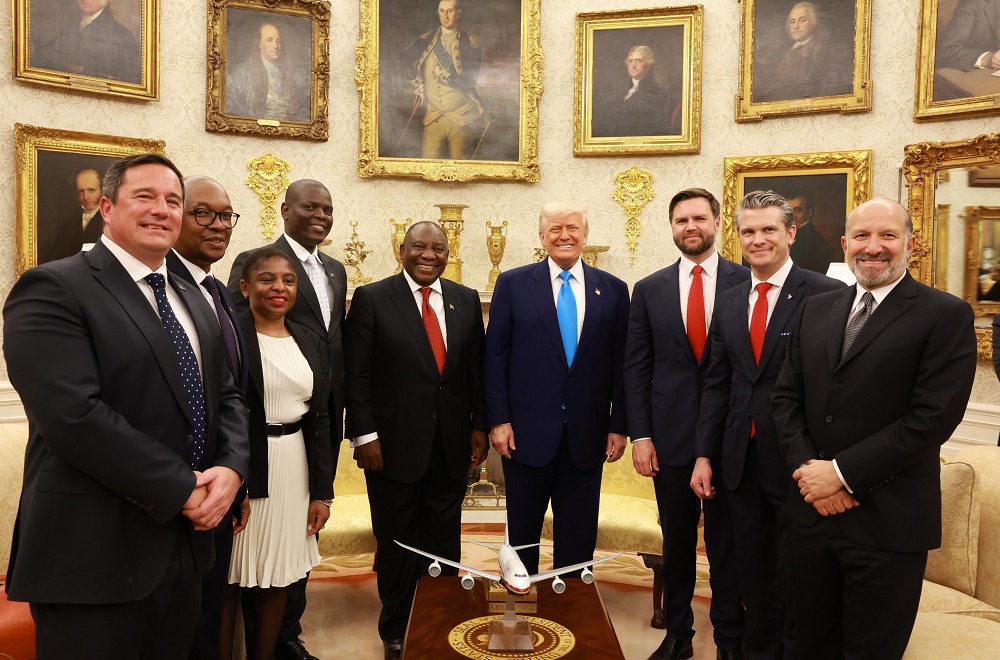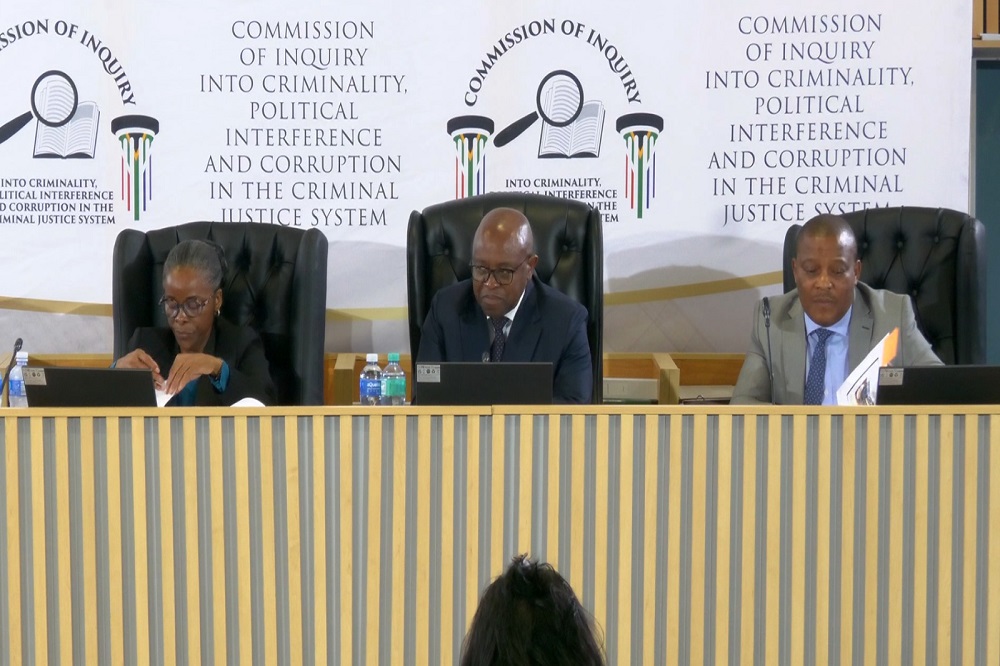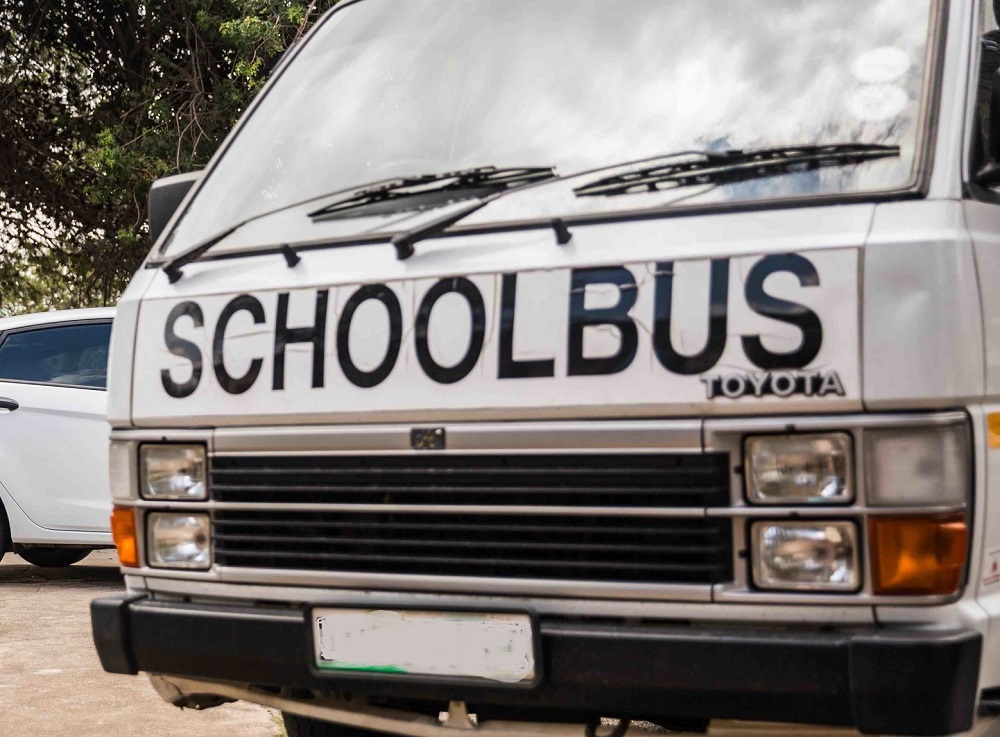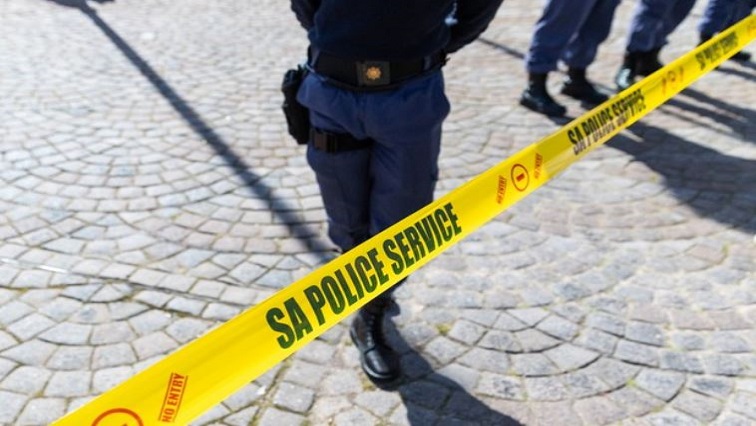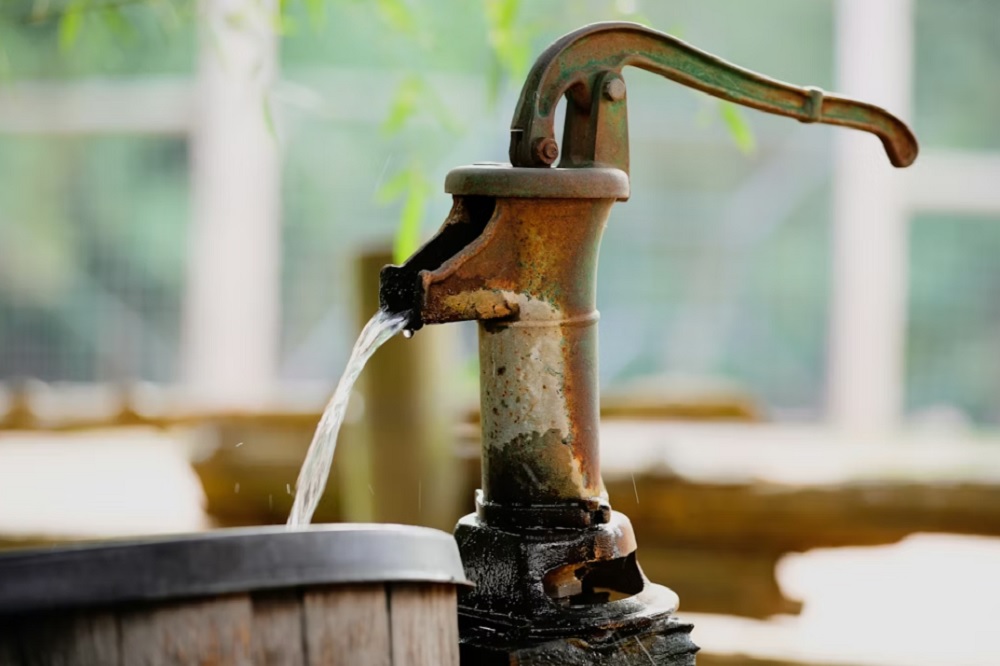President Cyril Ramaphosa emerged from his meeting with US President Donald Trump with a clear message that there was a firm agreement and undertaking that engagement would continue.
The South African delegation struck a positive tone after their closed-door session at the White House, which followed at times dramatic televised scenes in the Oval Office where Trump confronted Ramaphosa about the killings of White farmers, again describing it as a “genocide”.
President Ramaphosa pushed back, explaining that there was criminality in South Africa that affected all races.
Oval Office showdown
It’s been described as an ambush – within minutes of President Ramaphosa’s arrival, his delegation and the media hurriedly ushered into the Oval Office for an episode of political theatre that has now become commonplace in this White House.
President Donald Trump says, “A lot of people are very concerned with regards to South Africa. And that’s really the purpose of the meeting. And we’ll see how that turns out. But we have many people that feel they’re being persecuted and they’re coming to the United States. And we take from many, many locations if we feel there’s persecution or genocide going on. And we had a lot of people, I must tell you, Mr. President, we have had a tremendous number of people, especially since they’ve seen this.”
Despite the barrage of misplaced claims, including that when white people were murdered, their land was confiscated, even at one point likening it to a reversal of Apartheid.
Ramaphosa pushed back firmly but with a clear intention not to upset the entire apple cart.
“There is criminality in our country. People who do get killed, unfortunately, through criminal activity are not only white people. The majority of them are black people.”
Then responding to an extraordinary moment when the lights were dimmed in the Oval, and a TV screen wheeled in to play a video that in part showed EFF leader Julius Malema singing the “Kill the Boer” chant to a packed stadium and footage of a road populated with white crosses as a reflection of white farm murders in South Africa.
“Let me clarify that, let me clarify that because what you saw, the speeches that are being made, one – that is not government policy. We have a multiparty democracy in South Africa that allows people to express themselves, political parties to adhere to various policies. And in many cases, or in some cases, those policies do not go along with government policy. Our government policy is completely, completely against what he was saying, even in the Parliament, and they are a small minority party which is allowed to exist in terms of our Constitution,” explains President Ramaphosa.
There was also pushback from within the South African delegation, including Remgro Chair Johann Rupert.
“We have too many deaths, but it’s across the board. It’s not only white farmers, it’s across the board. We need technological help. We need Starlink at every little police station. We need drones.”
Or Cosatu President Zingiswa Losi saying, “The problem in South Africa is not necessarily about race, but it is about crime. And we think that we are here to see how we do both nations work together to reset, to really talk about investment, but also help us in how we can have the technology and everything that is needed, President.”
Update with SABC News Sherwin Bryce-Pease:
Later, at a separate briefing, Ramaphosa struck a positive tone on the road ahead, including greater participation of the USA in the G20 and a new trade and investment framework presented to the United States.
“There will continue to be engagement between South Africa and the United States officials, particularly the trade and industry level, to deal with the package of issues that we had tabled that have to do with, trade and investment and, if you like, Minister Dow will be able to outline some of those that are now being given serious consideration by the United States. So I was rather pleased that there was a firm agreement and undertaking that we are going to continue engaging. So there’s no disengagement.”
He concedes that the relationship had been contaminated by a number of issues, including the ICJ case against Israel, South Africa’s positioning in the Russia-Ukraine conflict, and the Afrikaner matter.
“Our objective in coming here was to reset relations between the two countries and to reposition our relations, which had become contaminated by some of the issues.
President Trump’s concern is about the safety of people in South Africa, though he narrowed it down to white farmers.
“We kept saying there is a security problem and we are not running away from that, this criminality. And we even sought to deal with it from its genesis, that in the end, when the economy is not growing, when there’s poverty, when there’s unemployment, one of the social ills that we get as a derivative is, criminality that spreads itself around the country, not only on farms.
Returning to the earlier Oval exchange, we pressed the US President on the way forward.
Sherwin: If this Afrikaner resettlement issue is resolved, you’re going to go into a room after this. You guys are going to talk. If it is resolved, what is the potential for the future, looking at the relationship between the United States and South Africa to resolve this?
Trump: I mean, it’s a little bit bad when you see a stadium with a hundred thousand people in it, because that means it’s more than just a little movement. It’s a pretty big movement in South Africa. So it has to be resolved. It will be the end of the country.
Sherwin: But is there potential for the relationship moving forward? You’re going to the G20 November meeting?
Trump: I’m not here for health…I’d like to see, I have a friend… I have friends… I can tell you, Ernie Els and Retief Goosen, they feel so strongly that they wanted to be here on behalf of South Africa and not on behalf of me. And, you know, they said. Can we be here for this because they love the country?
Despite the positioning of each side, the proof of this relationship’s trajectory will be based on an expansion of the trade relationship be whether within or outside of the African Growth and Opportunity Act’s framework, and perhaps less talk of genocide in the context of South Africa.
Full coverage:

